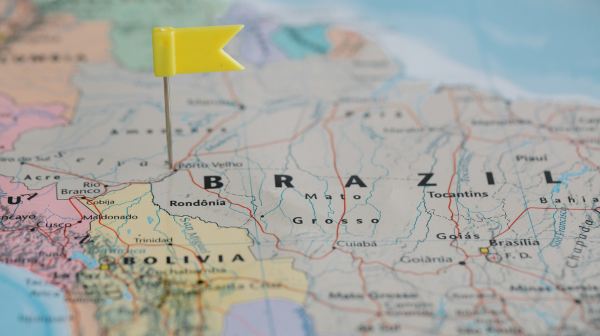When people think of Brazil and coffee, they often associate the country with its role as the world’s largest coffee exporter. While this is true, Brazil’s coffee culture is much deeper than just production and trade. Coffee is deeply embedded in Brazilian history, economy, and daily life. From traditional small-town cafés to innovative specialty coffee shops in big cities, coffee plays a crucial role in Brazilian society.
In this article, we will explore Brazil’s coffee culture beyond exports, looking at its history, influence on daily life, specialty coffee scene, and how Brazilians truly experience their coffee.
A Brief History of Coffee in Brazil
Brazil’s coffee story began in 1727, when Francisco de Melo Palheta brought the first coffee plants from French Guiana. By the 19th century, coffee had become the country’s main export and economic powerhouse. The fertile lands of São Paulo, Minas Gerais, and Espírito Santo proved to be perfect for large-scale coffee plantations, which fueled Brazil’s economic growth.
By the 20th century, Brazil dominated the global coffee market, producing nearly 80% of the world’s coffee at its peak. Although that number has decreased as other countries increased production, Brazil remains the top producer, responsible for around 35% of the world’s coffee today.
But coffee in Brazil is much more than just numbers—it is part of the country’s cultural identity.
Coffee in Everyday Brazilian Life
In Brazil, coffee is more than a beverage—it is a social ritual, a hospitality gesture, and an essential part of daily life. Brazilians drink coffee at home, at work, in cafés, and even on the go.
Cafézinho: The Heart of Brazilian Coffee Culture
The word “cafézinho” (literally “little coffee”) represents more than just a small cup of coffee—it symbolizes hospitality and warmth. It is common for Brazilians to offer visitors a cafézinho as a welcome gesture, whether at home, in an office, or even in stores.
A traditional cafézinho is:
- Strong and sweet: It is usually made with finely ground coffee and served with sugar already mixed in.
- Served in small cups: Similar to an espresso but with a smoother taste.
- A social experience: Drinking cafézinho is an opportunity to pause, chat, and connect with others.
Breakfast and Coffee: A Perfect Match
Brazilians love pairing their morning coffee with traditional foods such as:
☕ Pão de queijo (cheese bread) – A delicious, chewy cheese-filled bread, perfect with a cup of coffee.
☕ French bread with butter – Simple yet classic, often dipped in coffee for extra flavor.
☕ Cakes and pastries – Homemade cakes, such as corn cake (bolo de fubá), are often enjoyed with a fresh brew.
Unlike in many countries where coffee is consumed alone or with minimal food, in Brazil, coffee is often part of a larger experience.
The Rise of Specialty Coffee in Brazil
For a long time, most coffee produced in Brazil was focused on mass production rather than quality. However, in recent decades, the specialty coffee movement has grown significantly, leading to a new appreciation for high-quality, locally sourced coffee.
Brazilian Specialty Coffee Regions
Brazil has many distinct coffee-growing regions, each with unique flavors and characteristics. Some of the most famous ones include:
🌱 Minas Gerais – Produces about 50% of Brazil’s coffee. Known for rich, chocolatey, and nutty flavors.
🌱 São Paulo (Mogiana Region) – Balanced acidity with caramel and fruity notes.
🌱 Espírito Santo – Specializes in Robusta coffee, offering strong, bold flavors.
🌱 Bahia – A rising specialty coffee region with bright acidity and floral notes.
The Third Wave Coffee Scene in Brazil
In major cities like São Paulo, Rio de Janeiro, and Belo Horizonte, a new wave of coffee culture has emerged. The third wave coffee movement, which emphasizes high-quality beans, direct trade, and expert brewing techniques, is becoming more popular.
Some trends in Brazilian specialty coffee include:
- Direct trade with local farmers – Promoting fair prices and sustainability.
- Alternative brewing methods – V60, AeroPress, and cold brew are gaining popularity.
- Latte art and creative coffee drinks – Inspired by global coffee trends but with a Brazilian twist.
Brazilian Coffee Festivals and Events
To celebrate its coffee heritage, Brazil hosts various coffee festivals and competitions that highlight innovation and tradition.
São Paulo Coffee Festival
One of the biggest coffee events in Brazil, where baristas, roasters, and coffee lovers come together to explore new trends.
International Coffee Week (Semana Internacional do Café)
Held in Belo Horizonte, this event focuses on Brazilian coffee production, specialty coffee, and sustainability.
Coffee Harvest Festivals
In coffee-growing regions, locals celebrate the harvest season with traditional music, food, and, of course, plenty of coffee tasting.
Sustainability and the Future of Brazilian Coffee
As the coffee industry evolves, sustainability has become a major focus. Many Brazilian coffee producers are adopting eco-friendly practices, such as:
🌿 Shade-grown coffee – Protecting biodiversity and improving coffee quality.
🌿 Water-efficient processing – Reducing water waste in coffee production.
🌿 Organic and pesticide-free farming – Producing healthier, environmentally friendly coffee.
Additionally, direct trade and fair trade initiatives are helping small coffee farmers receive fair compensation for their work, ensuring the future of Brazil’s coffee industry.
Conclusion: More Than Just an Export Powerhouse
Brazil’s coffee culture is a rich and dynamic experience that goes far beyond its role as the world’s largest coffee exporter. From the traditional cafézinho to the modern specialty coffee scene, coffee is deeply woven into Brazilian life.
As sustainability and innovation continue to shape the industry, Brazil’s coffee culture will only grow stronger, offering both locals and visitors a chance to explore its flavors, traditions, and social rituals.
Whether you enjoy a simple cafézinho or a carefully brewed specialty coffee, one thing is clear: coffee in Brazil is much more than just a product—it’s a way of life.

